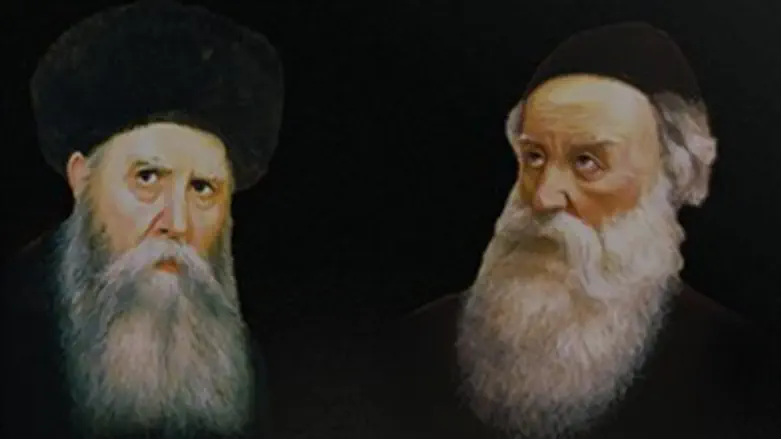
For an introduction to what Tanya is about, click here.
Note: Previous lectures can be accessed by means of the link below, but each lecture stands on its own.
Tanya/Shaar Hayichud V’haEmunah, Chapter 7, Class 2.
כי הנה סיבת וטעם הצמצום וההסתר הזה שהסתיר והעלים הקב״ה את החיות של העולם, כדי שיהיה העולם נראה דבר נפרד בפני עצמו
The cause and reason for this tzimtzum and concealment with which the Holy One, blessed be He, obscured and hid the life- force of the world, making it appear as an independently existing entity, [is as follows]:
I.e., the Alter Rebbe is asking why it is indeed necessary for the world to appear as an independently existing entity. What would be lacking if the world would be perceived in its true state — as an entity wholly nullified in relation to its source? The reason for this is as follows:
הנה הוא ידוע לכל, כי תכלית בריאת העולם הוא בשביל התגלות מלכותו יתברך
It is known to all that the purpose of the creation of the world is the revelation of [G‑d’s] sovereignty,
דאין מלך בלא עם
for3 “there is no king without a nation.”
פירוש עם: מלשון עוממות
The word עם (“nation”) is related etymologically to the word עוממות (“dimmed, extinguished”), as in the expression גחלים עוממות (Rashi on Shoftim 5:14), describing coals in which the fire is not to be seen. In terms of the relationship of a king and his subjects, the word עם thus signifies those whose relationship with the king is not readily apparent,
שהם דברים נפרדים וזרים ורחוקים ממעלת המלך
for they — the subjects who comprise a nation — are separate entities, distinct and distant from the level of the king; only upon them does the king reign, as a result of their nullifying themselves to him.
כי אילו אפילו היו לו בנים רבים מאד, לא שייך שם מלוכה עליהם
For even if he had very many children, the term “kingship” would not apply to them, inasmuch as the king’s children are part of the king himself,
וכן אפילו על שרים לבדם
nor is it possible for a king to reign even over nobles alone.
Although they — unlike a king’s children — are not part of him, nevertheless, since their position puts them in constant and close contact with him, thereby lending them some of the aspects of kingship, the king cannot reign over nobles alone.
רק ברוב עם דווקא הדרת מלך
Only4 “in a numerous nation is the glory of the king.”
Only upon strangers can sovereignty apply. The same is true Above: The ultimate intent of the revelation of Divine Kingship finds expression in His reigning over lowly created beings, who perceive themselves as existing independently of Him — so that they, too, should humble and nullify themselves before Him.
ושם המורה על מדת מלכותו יתברך הוא שם אדנות, כי הוא אדון כל הארץ
The Name that indicates the attribute of G‑d’s Malchut (“Kingship”) is the Name of Adnut (“Lordship”), for His Kingship lies in the fact that He is L‑rd of the whole universe.
ונמצא כי מדה זו ושם זה הן המהוין ומקיימין העולם להיות עולם כמות שהוא עכשיו
Thus, it is this attribute (viz., Malchut) and this Name (viz., the Name of Adnut, signifying lordship) which bring the world into existence and sustain it so that it should be as it is now —
יש גמור, ודבר נפרד בפני עצמו, ואינו בטל במציאות ממש
a completely independent and separate entity, and not absolutely nullified,
כי בהסתלקות מדה זו ושם זה, חס ושלום, היה העולם חוזר למקורו בדבר ה׳ ורוח פיו יתברך, ובטל שם במציאות ממש, ולא היה שם עולם עליו כלל
for with the withdrawal of this attribute and this Name from the world, G‑d forbid, the world would revert to its source in the “word of G‑d” and the “breath of His mouth,” where it would be completely nullified, and the name “world” could not be applied to it at all.
Inherent in the name “world” is being and limitation. However, in the state in which the world finds itself within its source it would have no “being” and would not be limited.
והנה גדר ובחינת שם עולם נופל על בחינת מקום ובחינת זמן דוקא
The term “world” can be applied solely to [that which possesses] the dimensions of space and time,
בחינת מקום הוא מזרח ומערב, צפון, דרום, מעלה ומטה
“space” referring to east, west, north and south, upward and downward,
ובחינת זמן: עבר, הוה ועתיד
and “time” referring to past, present and future.
Only with regard to entities that are subject to the limitations of space and time can the term “world” be applied.
______
FOOTNOTES
__________
3.Emek HaMelech, Shaar HaMitzvot, beginning of ch. 1; Rabbeinu Bachaye, Parshat Vayeishev, 38:2. Cf. Pirkei deRabbi Eliezer, ch. 3.
4.Mishlei 14:28.